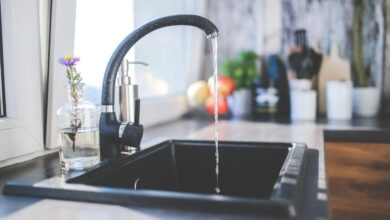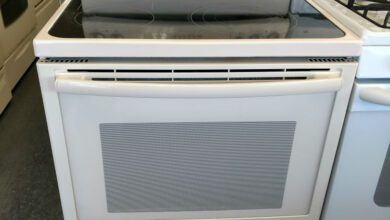Where is the Bathroom in Portuguese

The bathroom in Portuguese is called “banheiro” or “toilette.” In Portuguese, “Onde fica o banheiro?”
Means “Where is the bathroom? ” In unfamiliar territory, finding the bathroom quickly becomes a top priority. Whether you’re traveling to Portugal, Brazil, or any other Portuguese-speaking country, being able to ask for directions to the bathroom can be a lifesaver.
Learning a few basic phrases in the local language can make the difference between a comfortable experience and an awkward situation. We will focus on one specific question: “Where is the bathroom in Portuguese? ” We will provide you with concise and accurate information on how to ask this question in Portuguese, ensuring that you can confidently navigate any Portuguese-speaking environment in your future travels. So let’s dive in and discover the essential phrase that will help you find your much-needed comfort zone in Portuguese-speaking locations.
Essential Phrases For Finding And Using The Bathroom In Portuguese
Looking for the bathroom in Portuguese? Learn essential phrases to find and use the bathroom easily. Discover how to ask “Where is the bathroom? ” And other useful expressions in Portuguese.
For travelers visiting Portugal or any Portuguese-speaking country, knowing how to find and use the bathroom is essential. Whether you’re exploring the historic streets of Lisbon or lounging on the beautiful beaches of Brazil, it’s crucial to master the basic phrases that will help you navigate the necessary facilities.
We will cover common Portuguese words for bathroom items, ensuring you are well-prepared when nature calls.
Common Portuguese Words For Bathroom Items:
- Toilet: O banheiro
- Sink: A pia
- Mirror: O espelho
- Soap: O sabão
- Hand towel: A toalha de mão
- Toilet paper: O papel higiênico
- Hand dryer: O secador de mãos
These words will come in handy when you are in search of a bathroom or need to ask for specific items within the facilities. By familiarizing yourself with these common Portuguese terms, you’ll be able to confidently navigate any restroom situation.
Tips For Finding And Using The Bathroom In Portuguese:
- Ask where the bathroom is: Onde fica o banheiro?
- This question is your go-to phrase when you need to locate the nearest restroom. You can approach locals or staff members and inquire using this simple and straightforward phrase.
- Pay attention to signage: Homens / Mulheres
- In public places, bathrooms are usually labeled with signs indicating “Homens” (men) and “Mulheres” (women). Look for these signs to ensure you are entering the correct restroom.
- Remember that most bathrooms are unisex: Banheiro unissex
- In recent years, many establishments in Portugal and Brazil have adopted unisex restrooms. If you encounter a bathroom labeled “Banheiro unissex,” it means it can be used by people of any gender.
- Be prepared with toilet paper: Tenha papel higiênico à mão
- It’s common in public restrooms, particularly in smaller establishments, to find that toilet paper may not be readily available. To avoid any inconveniences, it’s wise to carry a small pack of tissues with you.
- Pay attention to hygiene practices: Lave as mãos
- Practicing good hygiene is vital, especially during travel. Remember to wash your hands regularly and thoroughly. Look for signs that say “Lave as mãos” (wash your hands) to locate the handwashing area.
- Respect cultural norms: Não jogue papel no vaso sanitário
- In Portugal and some other Portuguese-speaking countries, it’s important to note that it is common practice not to flush toilet paper down the toilet. Instead, look for signs that say “Não jogue papel no vaso sanitário” (do not throw paper in the toilet) and dispose of the paper in the provided bins.
By familiarizing yourself with these essential phrases and tips, you’ll be well-equipped to confidently find and use the bathroom in Portuguese-speaking countries. So, explore and enjoy your journey with peace of mind knowing that restroom emergencies will not dampen your experience.
Polite Ways To Ask For The Location Of Bathroom Facilities
Wondering how to politely ask for the location of bathroom facilities in Portuguese? Check out these helpful phrases to ensure a smooth communication experience and find the restroom easily.
Asking for the bathroom when you’re in a foreign country can be a little tricky. You want to make sure you’re being polite and using the right phrases. In this section, we will explore some useful ways to ask for the location of bathroom facilities in Portuguese.
How To Ask “Where Is The Bathroom?” In Portuguese
To start, let’s learn how to ask the basic question “Where is the bathroom? ” In Portuguese. Here are a few different ways you can phrase it:
- Onde fica o banheiro? (Where is the bathroom?)
- Onde está o banheiro? (Where is the bathroom?)
- Poderia me informar onde fica o banheiro? (Could you please tell me where the bathroom is?)
- Poderia me dizer onde está o banheiro? (Could you please tell me where the bathroom is?)
Remember to say these phrases with a polite and friendly tone to ensure you get the help you need.
Useful Phrases For Getting Directions To The Bathroom
Now that you know how to ask for the bathroom, let’s explore some useful phrases that can help you understand the directions you are given:
- À direita: On the right
- À esquerda: On the left
- Reto: Straight ahead
- No final do corredor: At the end of the hallway
- No térreo: On the ground floor
- No primeiro/segundo/terceiro andar: On the first/second/third floor
- Atrás da recepção: Behind the reception
- Ao lado da cafeteria: Next to the cafeteria
- No fim do corredor à esquerda: At the end of the hallway on the left
By using these phrases, you can better understand the directions given to you and easily find your way to the bathroom.
Recap
When asking for the location of bathroom facilities in Portuguese, remember to use polite phrases such as “Onde fica o banheiro? ” Or “Onde está o banheiro? ” Additionally, familiarize yourself with useful directions such as “À direita” for on the right or “No final do corredor” for at the end of the hallway.
By using these phrases and directions, you’ll have no trouble finding the bathroom in Portuguese-speaking places.
Expand Your Portuguese Bathroom Vocabulary
Discover essential Portuguese bathroom vocabulary to navigate your way to the restroom with ease. Master phrases to ask “Where is the bathroom? ” In Portuguese and expand your language skills effortlessly.
In this section, we will explore different words and phrases related to bathrooms in Portuguese. Whether you are traveling to a Portuguese-speaking country or simply curious about expanding your language skills, knowing how to ask for the bathroom and describe its facilities can be incredibly helpful.
Let’s dive in!
Words For Different Types Of Bathrooms:
- Banheiro: This is the general term for a bathroom in Portuguese. It can be used to refer to both public and private bathrooms.
- Banheiro público: Public bathroom. Often indicated by the sign “WC” or “Toilet”.
- Banheiro privado: Private bathroom. Usually found in hotels, resorts, or private establishments.
Describing Bathroom Facilities In Portuguese:
- Sanitários: Toilets.
- Vaso sanitário: Toilet bowl.
- Pia: Sink.
- Espelho: Mirror.
- Chuveiro: Shower.
- Banheira: Bathtub.
Related Terms For Hygiene And Personal Care:
- Sabonete: Soap.
- Papel higiênico: Toilet paper.
- Toalha: Towel.
- Xampu: Shampoo.
- Condicionador: Conditioner.
- Escova de dentes: Toothbrush.
- Pasta de dentes: Toothpaste.
- Fio dental: Dental floss.
- Desodorante: Deodorant.
Remember, learning these words will not only help you navigate your way around bathrooms in Portuguese-speaking countries but also enhance your overall language skills.
Understanding Bathroom Customs And Etiquette In Portugal And Brazilian Portuguese-Speaking Regions
Discover the essential Portuguese phrases to find the bathroom in Portugal and Brazilian Portuguese-speaking regions. Gain a deep understanding of bathroom customs and etiquette in these areas.
Proper Bathroom Etiquette In Portugal And Brazil:
In Portugal and Brazilian Portuguese-speaking regions, it’s crucial to understand the customs and etiquette related to bathroom usage. To make sure you navigate these situations with ease, here’s what you need to know:
- Respect personal space: Give others enough privacy and personal space when using public or shared bathrooms.
- Knock before entering: Always knock before entering a bathroom, especially if it’s a private or personal space.
- Gender-specific bathrooms: Some establishments have separate bathrooms for men and women. Look for signs indicating which one to use.
- Toilet seat etiquette: In Portugal and Brazil, it is common courtesy to leave the toilet seat down after use, especially in shared or public bathrooms.
- Flush thoroughly: Always remember to flush the toilet after using it, ensuring that it is left clean and ready for the next person.
Differences Between Public And Private Bathrooms:
Whether you find yourself in a public or private bathroom setting, there are a few distinctions to be aware of:
In public bathrooms:
- Paying to use the facilities: In certain establishments, such as restaurants or shopping centers, it may be necessary to pay a small fee to access the bathroom.
- Toilet paper: Some public bathrooms may not provide toilet paper, so it’s always a good idea to carry some with you for such situations.
- Hand washing: After using the restroom, it is important to wash your hands thoroughly. Look for soap and water or hand sanitizers in the bathroom.
- Keeping it clean: Many public restrooms have attendants who clean and maintain the facilities. It is advisable to leave the bathroom as tidy as you found it.
In private bathrooms:
- Courtesy in someone’s home: When using a private bathroom in someone’s home, it is polite to leave it in the same condition as you found it.
- Toilet paper disposal: Unlike public bathrooms, private bathrooms often have a small trash bin for disposing of used toilet paper, as some plumbing systems are not designed to handle it.
- Keeping a stock: It’s always considerate to refill or replace any toiletries or supplies that you might have finished using in a private bathroom, such as toilet paper or soap.
Remember, understanding and respecting bathroom customs and etiquette in Portugal and Brazilian Portuguese-speaking regions will help ensure a smooth and polite experience for everyone involved.
Practical Advice For Locating Bathrooms When Traveling In Portuguese-Speaking Countries
Discover the ultimate guide to finding restrooms while traveling in Portuguese-speaking countries. Get practical tips on locating bathrooms in Portuguese and ensure a hassle-free experience wherever you go.
Traveling to Portuguese-speaking countries can be an exciting adventure, but it’s important to be prepared for any situation, including finding a bathroom. In this blog post, we will provide practical advice for locating bathrooms when traveling in Portuguese-speaking countries. From recognizing bathroom signage and symbols to differentiating between male and female restrooms, as well as finding accessible and family-friendly options, we’ve got you covered.
So let’s dive right in!
Recognizing Bathroom Signage And Symbols In Portuguese-Speaking Countries:
- Look for the word “Banheiro” or “WC” which means “bathroom” in Portuguese. This is the most commonly used term across Portuguese-speaking countries.
- Pay attention to universal symbols for male and female restrooms. These symbols are usually depicted on the door or near the entrance of the bathrooms.
- Familiarize yourself with the local variations of bathroom signage. While some countries may use the standard symbols, others may have unique symbols or words specific to their culture.
Differentiating Between Male And Female Restrooms In Portuguese-Speaking Regions:
- Scan for gender-specific words such as “Homens” for men and “Mulheres” for women. These terms are commonly used in Portugal and Brazil.
- Look for pictorial representations of men and women to distinguish between male and female restrooms.
- If signage is not clear, don’t hesitate to politely ask a local for assistance. They will be happy to point you in the right direction.
Accessible And Family-Friendly Bathroom Options In Portugal And Brazil:
- Many public places in Portugal and Brazil offer accessible restrooms for people with disabilities. Look for the words “Acesso para Deficientes” or the international accessibility symbol on the bathroom door.
- Families traveling with children will find family-friendly restrooms in shopping malls, airports, and larger tourist attractions. These restrooms are equipped with changing tables and are designed to accommodate parents with young children.
- In Brazil, some establishments may have unisex bathrooms labeled as “Unissex” or “Fraldário” for changing rooms. These can be used by anyone regardless of gender.
Whether you’re exploring the cobblestone streets of Lisbon or the vibrant beaches of Rio de Janeiro, knowing how to locate a bathroom is essential for a stress-free trip. By familiarizing yourself with bathroom signage and symbols, differentiating between male and female restrooms, and finding accessible and family-friendly options, you’ll be able to navigate any bathroom situation with ease.
So go ahead and enjoy your Portuguese-speaking adventure without worrying about finding the bathroom!

Credit: www.pinterest.com
Specifics About Finding And Using Bathrooms In Various Public Settings In Portuguese-Speaking Countries
Discover the exact locations and language you need to ask for the bathroom in Portuguese-speaking countries. Easily navigate public settings with this helpful guide.
Bathroom Availability In Hotels, Restaurants, And Tourist Areas
In Portuguese-speaking countries, such as Portugal and Brazil, finding a bathroom in hotels, restaurants, and tourist areas is relatively easy. Here are some specifics to keep in mind:
- Hotels:
- Most hotels have bathrooms available for guests in their rooms or common areas.
- Some hotels may require guests to be staying at the property or provide a key card to access the bathrooms.
- Luxury hotels often have well-maintained and spacious bathrooms with amenities such as toiletries and towel services.
- Restaurants:
- Many restaurants have bathrooms for customers to use.
- In smaller or casual establishments, the bathrooms may be simple and more basic in terms of amenities.
- High-end restaurants usually provide clean and well-equipped bathrooms.
- Tourist Areas:
- Public restrooms are often available in tourist areas, such as parks, museums, and attractions.
- These bathrooms are usually well-maintained to accommodate the high number of visitors.
- Be prepared to pay a small fee to use public restrooms in some tourist areas.
Public Bathroom Expectations And Norms In Portugal And Brazil
Knowing the expectations and norms regarding public bathrooms in Portugal and Brazil can help ensure a smooth experience. Here are a few key points to keep in mind:
- Cleanliness:
- Public bathrooms are generally clean in both Portugal and Brazil, but the level of cleanliness may vary.
- In major cities and popular tourist destinations, public bathrooms are usually well-maintained.
- In more remote or rural areas, public bathrooms may be less clean and have fewer amenities.
- Toilet Paper:
- Most public bathrooms provide toilet paper, but it’s always a good idea to carry some tissues or toilet paper with you, especially in case of emergencies.
- Hand Dryers and Towels:
- While hand dryers are commonly found in public bathrooms, it’s also common to find paper towels or hand towels for drying hands.
- In some older establishments, you may encounter bathrooms without any drying options, so having a small towel or handkerchief can be helpful.
- Flushable Items:
- To avoid clogging the toilets, it’s important to only flush toilet paper. Other items should be disposed of in the provided trash bins.
Paying For Bathroom Usage And Tipping Attendants
When it comes to paying for bathroom usage and tipping attendants in Portuguese-speaking countries, here are a few things to consider:
- Paid Bathrooms:
- In some public areas, especially tourist spots, you may encounter paid bathrooms where a small fee is required to access the facilities.
- Keep some loose change or small bills on hand to pay for these bathrooms.
- The fee is usually minimal and helps maintain cleanliness and the availability of essentials like toilet paper.
- Attendants:
- Occasionally, you may come across attendants in public bathrooms, especially in upscale establishments or busy areas.
- While tipping is not mandatory, it is appreciated to show gratitude for their services.
- You can offer a small tip, usually in the local currency, to the attendant as a gesture of appreciation for keeping the facilities clean and stocked.
Remember to be respectful and considerate when using public bathrooms in Portuguese-speaking countries. By adhering to local norms and expectations, you can ensure a positive experience while exploring these beautiful destinations.
Frequently Asked Questions For Where Is The Bathroom In Portuguese
How Do I Ask “Where Is The Bathroom?” In Portuguese?
To ask “Where is the bathroom? ” In Portuguese, you can say “Onde fica o banheiro? “. This phrase will help you communicate your need for the restroom in Portugal or any other Portuguese-speaking country.
Are Public Restrooms Easily Accessible In Portuguese-Speaking Countries?
Yes, public restrooms are generally easy to find in Portuguese-speaking countries. You can find them in restaurants, shopping malls, tourist attractions, and other public places. Look for signs that say “banheiro” or “WC” to locate them easily.
What Are Some Common Phrases Related To Finding The Bathroom In Portuguese?
Apart from asking “Where is the bathroom? ” (Onde fica o banheiro? ), you might also find these phrases useful:
Do I Need To Pay To Use The Restroom In Portuguese-Speaking Countries?
In most cases, you don’t have to pay to use the restroom in Portuguese-speaking countries. However, some tourist attractions or public restrooms in certain areas may charge a small fee for maintenance purposes. It’s always a good idea to keep some change handy, just in case.
Conclusion
Whether you’re planning a trip to Portugal or just curious about the language, knowing how to ask where the bathroom is can be incredibly useful. In this blog post, we’ve explored various phrases and expressions to help you navigate this specific necessity when you’re in a Portuguese-speaking country.
From “Onde fica o banheiro? ” To “Onde posso encontrar um banheiro? “, we’ve covered a range of ways to ask for directions to the bathroom. We’ve also discussed tips for understanding the responses you may receive and how to politely ask for more information if needed.
By learning these phrases, you’ll not only be able to find the bathroom with ease but also engage in basic conversations with locals, making your trip more enjoyable. So, keep practicing and making an effort to connect with the Portuguese language and culture.
Before you know it, you’ll be confidently locating bathrooms and communicating with the locals. Happy travels!










